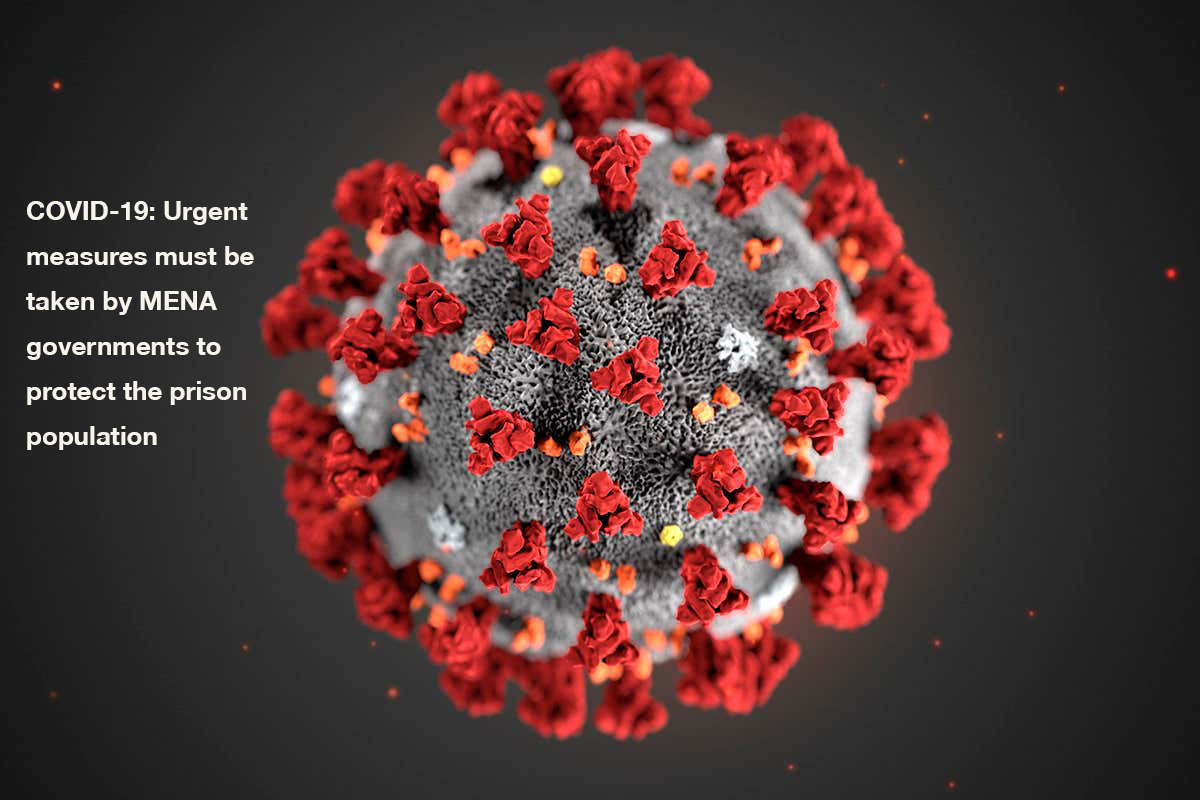
In light of the global COVID-19 pandemic outbreak—qualified as a Public Health Emergency of International Concern by the World Health Organization (WHO)—we, the undersigned organizations, express grave concern over the situation of detainees and prisoners across the Middle East and North Africa (MENA). While certain states in the region have taken some positive steps to protect the general population, the prison population remains particularly vulnerable.
Several countries in the MENA region have overstretched health systems and infrastructures, some of which have also been considerably weakened by years of armed conflict. In these countries, prisons and detention facilities are often overcrowded, unsanitary, and suffer from a lack of resources; accordingly, detainees are routinely denied proper access to medical care. These challenges are only further exacerbated during a health emergency, subjecting detainees and prisoners to heightened risk and placing weak prison health infrastructures under immense stress. Moreover, individuals in detention regularly interact with prison wardens, police officers, and health professionals who engage with the general population. Failure to protect prisoners and prison staff from COVID-19 may have negative implications for the population more broadly.
Under international human rights law, every individual has the right to the highest attainable standard of physical and mental health. States have an obligation to guarantee realization of this right. In addition, states have the obligation to ensure that detainees and prisoners are treated humanely and with respect for their dignity and not subject to cruel, inhuman, and degrading treatment. The Nelson Mandela Rules require equivalence in healthcare—meaning that healthcare in prisons must meet the same standards as healthcare outside of them. This does not change during a pandemic.


